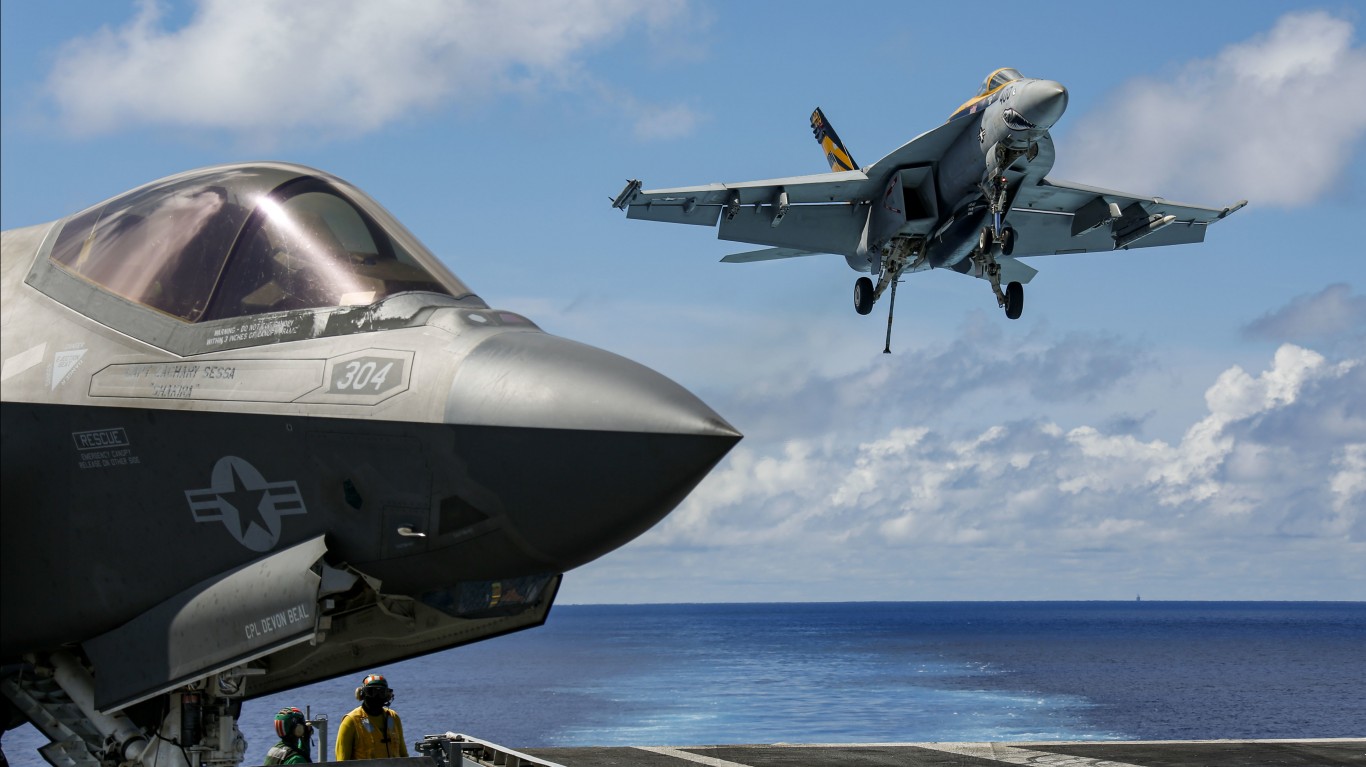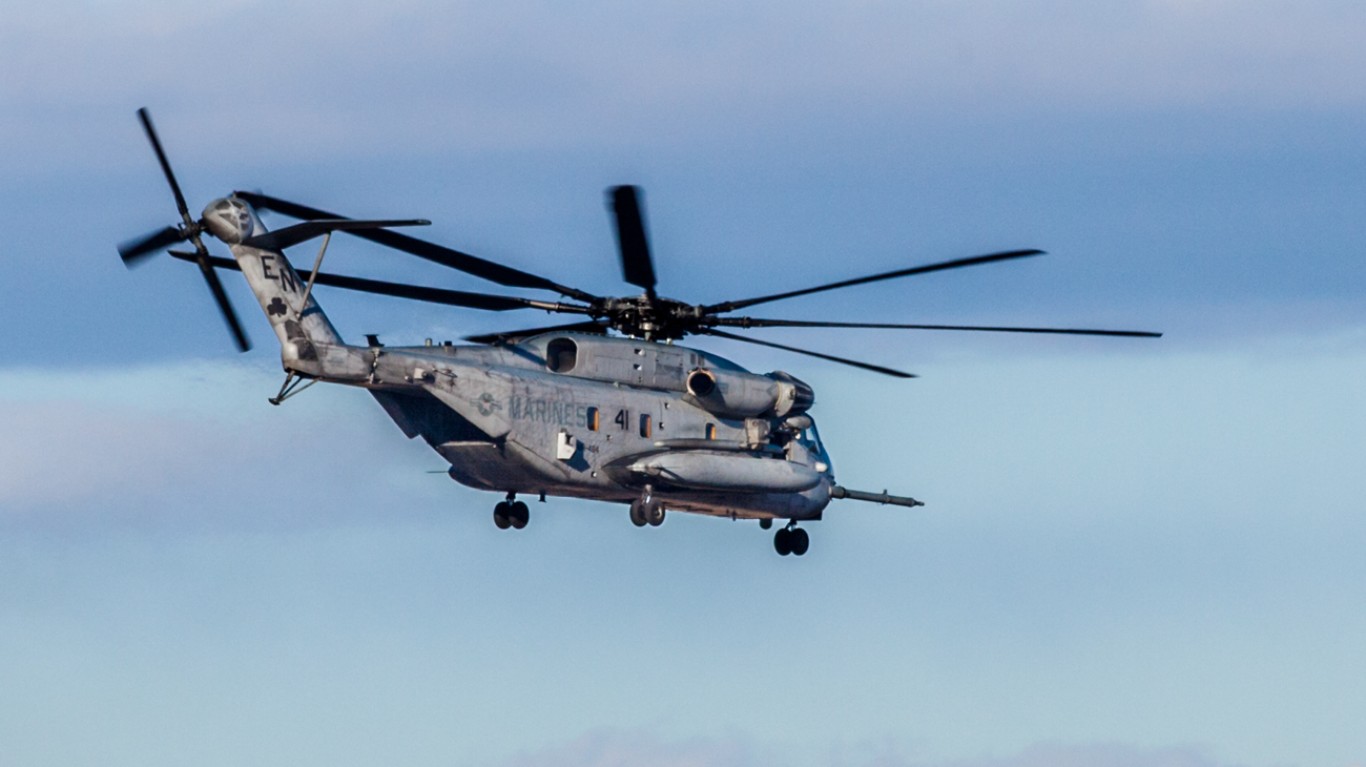
The age of the aircraft carrier began in World War II and has persisted through the modern age. Carriers hosting a multitude of aircraft claim dominance over hundreds of miles of the ocean. While these carriers may not be as well armed as a destroyer, the payload that their aircraft carry more than make up for this, ensuring projection of military power over vast distances. (These are the 7 world powers with aircraft carriers.)
The U.S. Navy’s air power, distributed across the oceans on its nuclear-powered aircraft carriers, plays a key role in maintaining dominance and global security. Currently, the Navy uses a mix of modernized carrier-based aircraft, and here is a look at that arsenal.
To determine the planes that fly on American aircraft carriers today, 24/7 Wall St. reviewed data from Military Factory, an online database of military vehicles, aircraft, arms, and more. We included only aircraft currently in service by the U.S. military, as vetted by various sources. The list is ordered alphabetically. Supplemental information on the year each aircraft entered service, its production run, crew size, manufacturer, top speed, and variants came from Military Factory.
Arguably, the most advanced carrier-based aircraft is the F-35C Lightning II. This fifth generation multirole stealth fighter can penetrate air defenses, successfully carry out precision strikes on ground targets, and provide unparalleled air supremacy. Its ability to land vertically makes it ideal for carriers. (Here are 12 stealth planes used by global superpowers.)
The multirole, carrier-borne F/A-18 Super Hornet provides the backbone to naval airpower, with its precision-guided weapons. Designed with a reduced radar signature and greater range than its predecessor, today it is the most common fighter on U.S. Navy aircraft carrier flight decks. However, Boeing reportedly plans to stop production of the aircraft in 2025, and the Super Hornet will be replaced by the F-35 and the Navy’s upcoming sixth-generation fighter.
The E-2D Advanced Hawkeye fills the airborne early warning role on carriers. This aircraft features advanced avionics and sensors that provide a 360-degree view of the battlefield, acting as an airborne tactical air controller and a surveillance platform, proving critical for fleet defense.
One of the other main entries on this list is the CMV-22 Osprey, which plays a role in mid-air refueling and cargo transport. It offers long-range tiltrotor capabilities, which enables it to deliver critical logistics support to the carrier strike groups.
Noticeably, the most active aircraft in service on this list are fighter jets, which make up most of the fleet. Helicopters and transports make up most of the remainder as they fill more logistical roles for moving troops and cargo on and off the carriers.
This diverse array of carrier-based aircraft gives the U.S. Navy the flexibility, responsiveness, and strategic depth demanded in the 21st century’s complex operational environment.
These are the American planes that fly on aircraft carriers today.
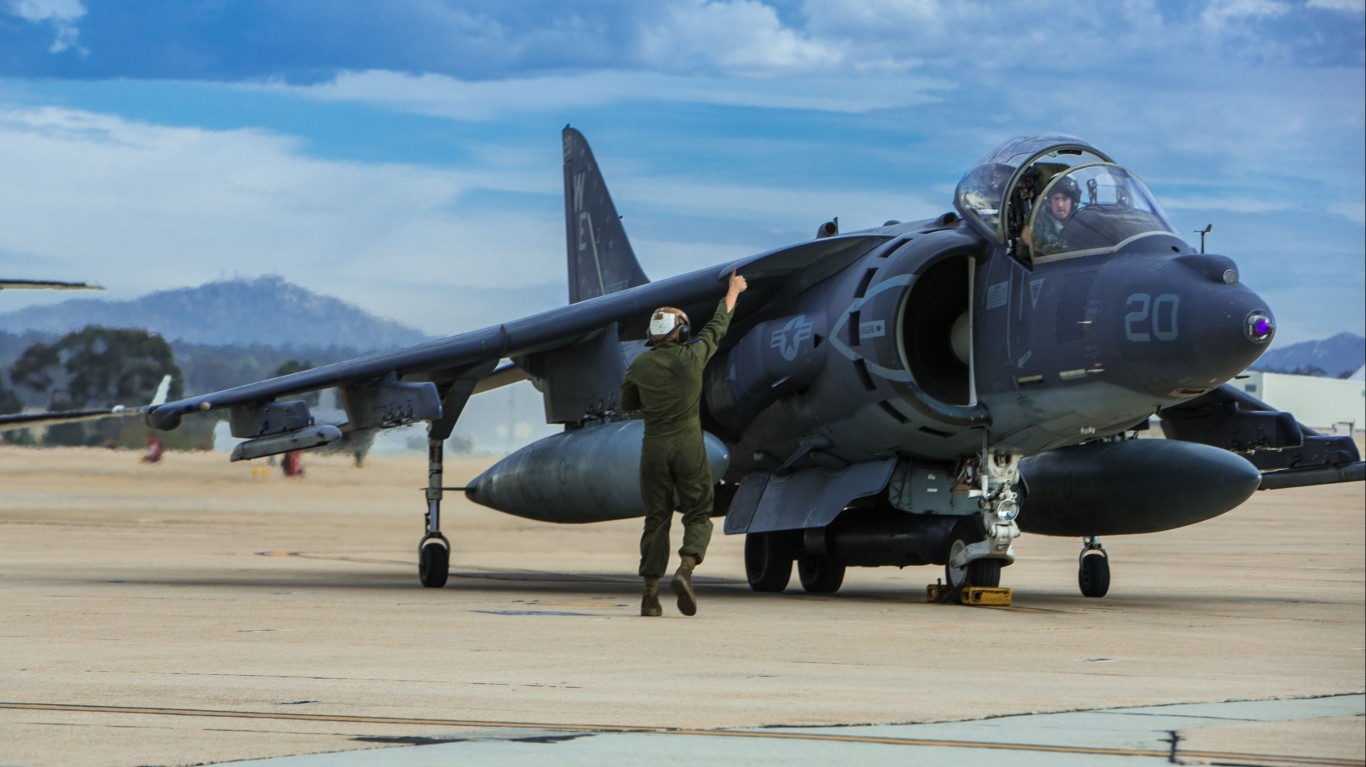
AV-8B Harrier II
> Aircraft in active service: 99
> Year entered service: 1985
> Crew: 1
> Manufacturer: Boeing, BAE Systems
> Top speed: 665 mph
> Variants: TAV-8B (two-seat trainer), AV-8B (Harrier II Night Attack)
[in-text-ad]
Bell AH-1 SuperCobra
> Aircraft in active service: 159
> Year entered service: 1971
> Crew: 2
> Manufacturer: Bell
> Top speed: 173 mph
> Variants: AH-1J (SeaCobra), AH-1Z (Viper)
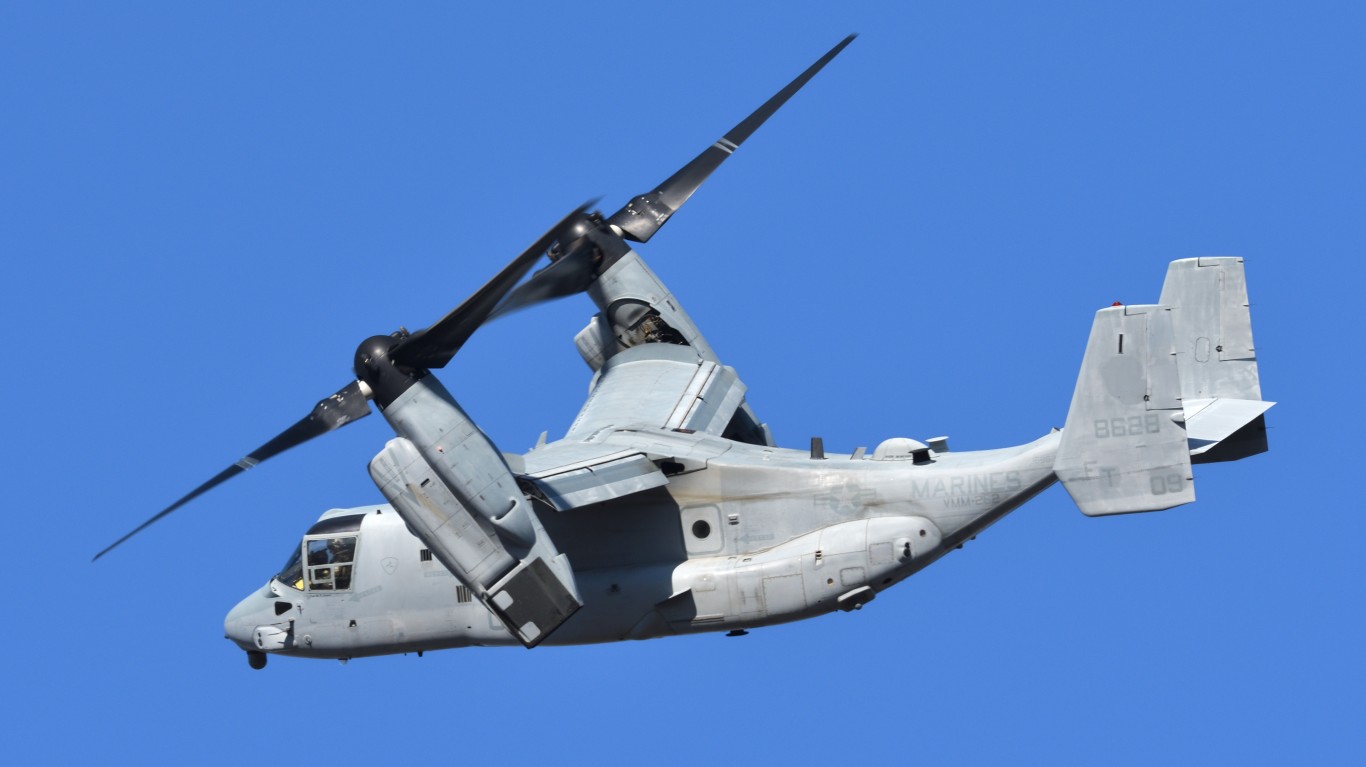
Bell Boeing V-22 Osprey
> Aircraft in active service: 360
> Year entered service: 2007
> Crew: 3
> Manufacturer: Bell, Boeing
> Top speed: 316 mph
> Variants: V-22 (base series), CMV-22B (long-ranged V-22 model)
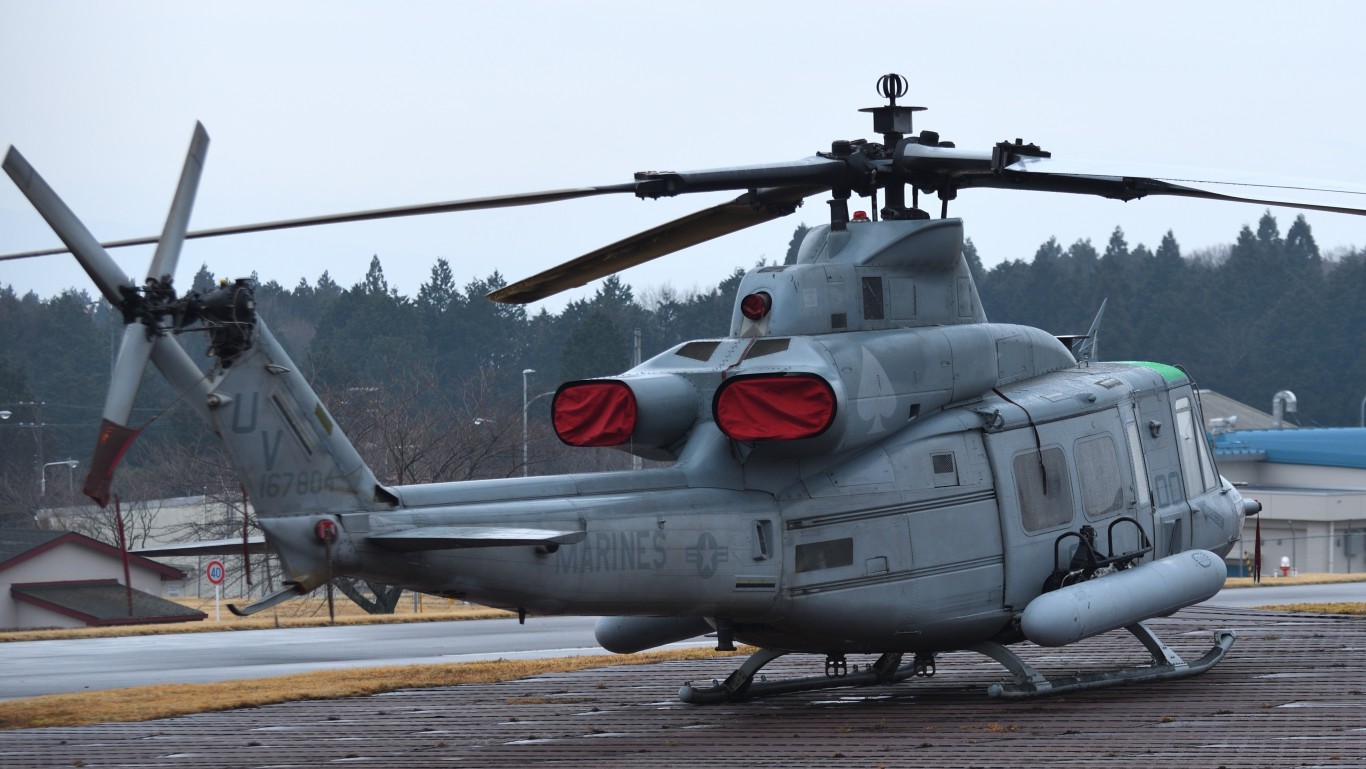
Bell UH-1Y Venom
> Aircraft in active service: 129
> Year entered service: 2009
> Crew: 1
> Manufacturer: Bell
> Top speed: 190 mph
> Variants: Bell UH-1 Huey, Bell UH-1Y Venom
[in-text-ad-2]
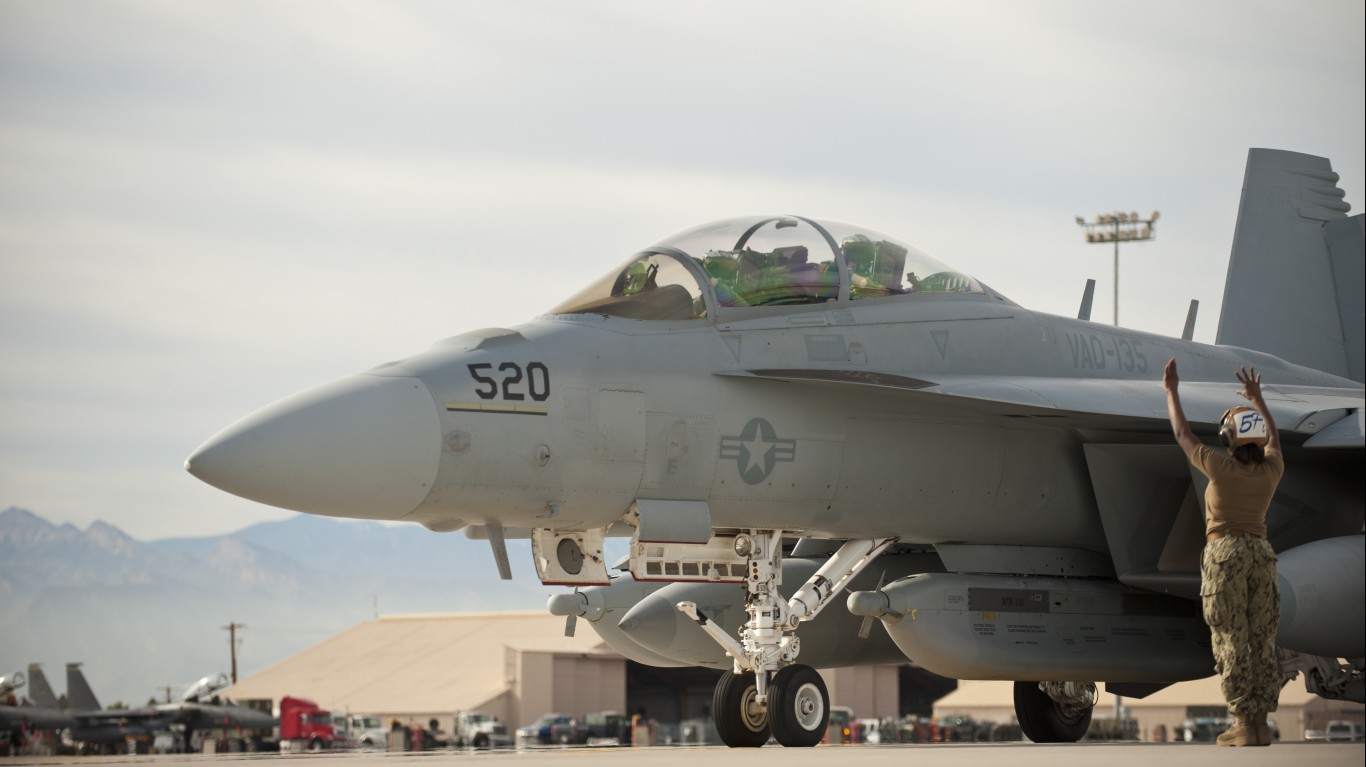
Boeing EA-18G Growler
> Aircraft in active service: 152
> Year entered service: 2009
> Crew: 2
> Manufacturer: Boeing
> Top speed: 1181 mph
> Variants: EA-18G (base series), Block II
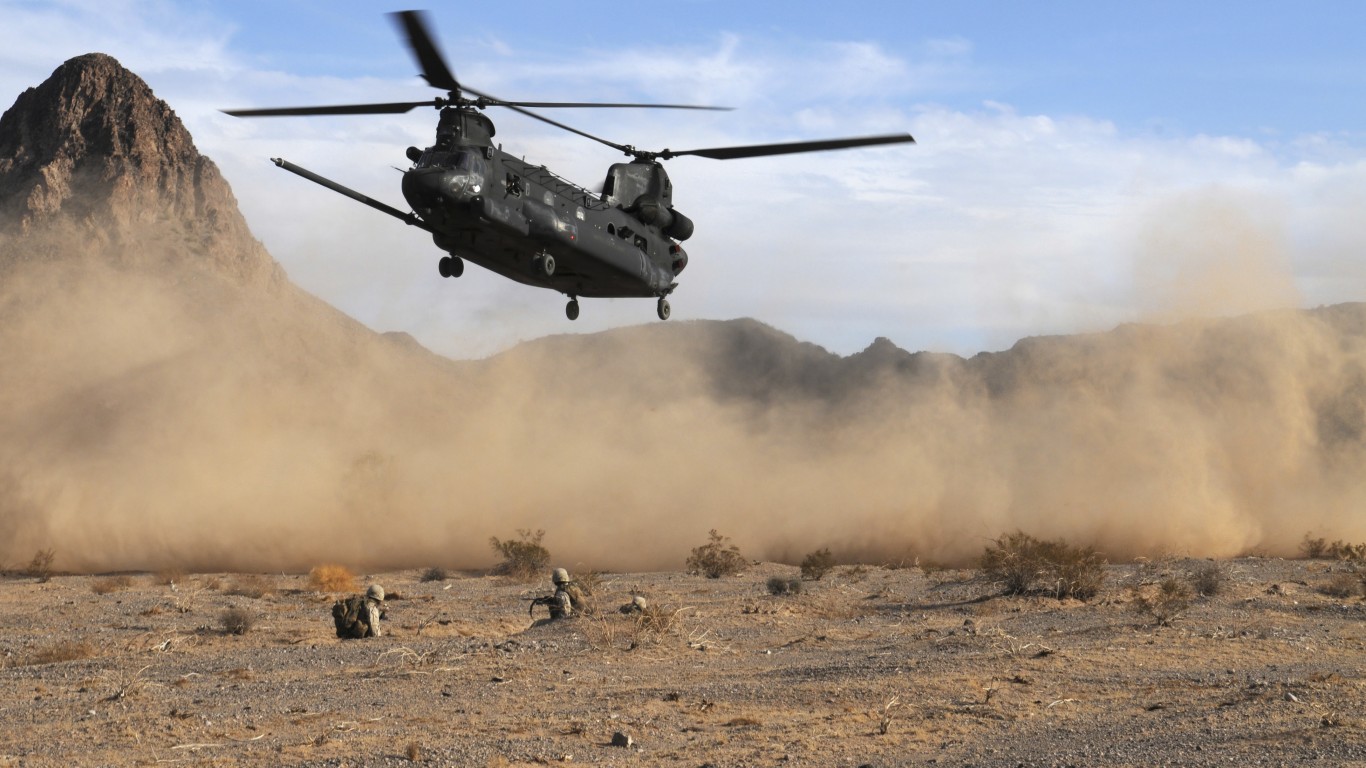
CH-47 Chinook
> Aircraft in active service: 513
> Year entered service: 1962
> Crew: 3
> Manufacturer: Boeing
> Top speed: 180 mph
> Variants: CH-47A (base model), MH-47D (special operations model)
[in-text-ad]
E-2D Hawkeye
> Aircraft in active service: 73
> Year entered service: 2014
> Crew: 5
> Manufacturer: Northrop Grumman
> Top speed: 404 mph
> Variants: Hawkeye, Advanced Hawkeye
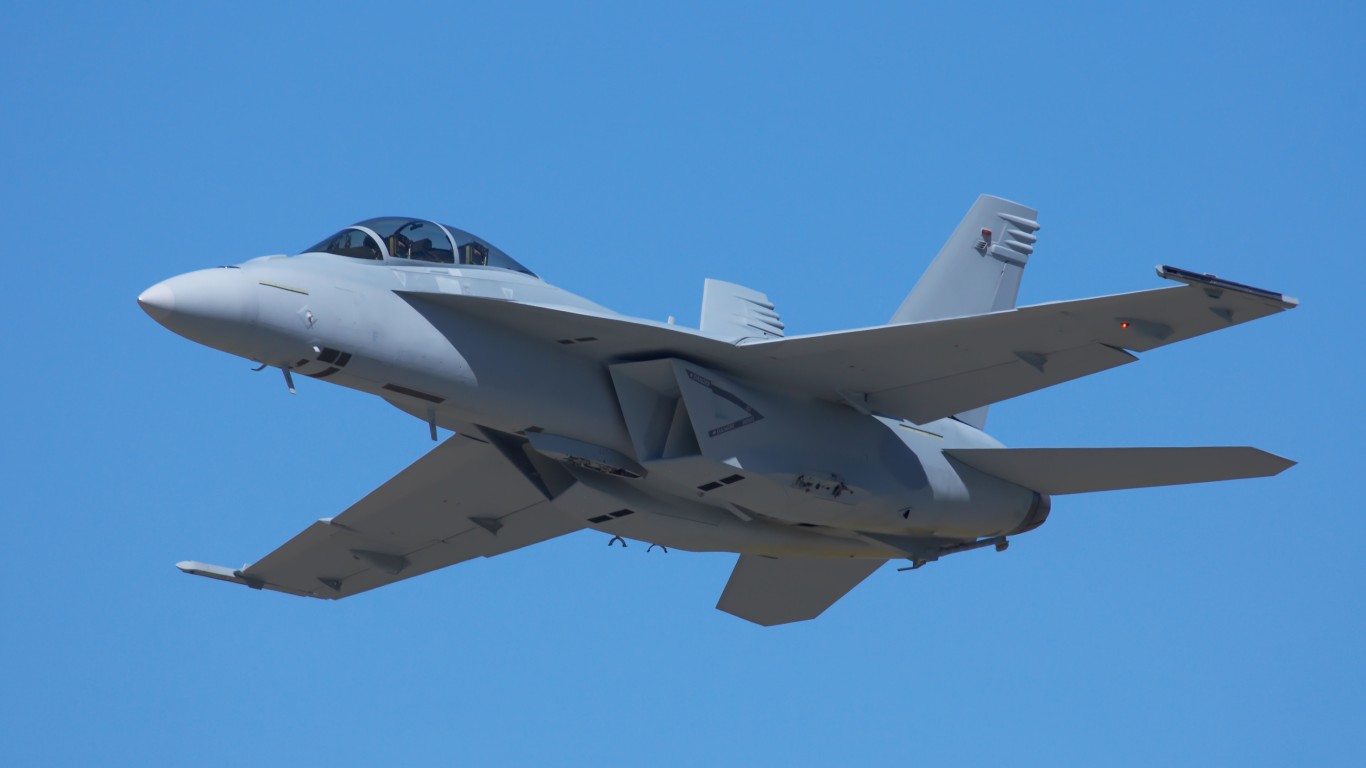
F/A-18 Hornet
> Aircraft in active service: 236
> Year entered service: 1983
> Crew: 1 or 2
> Manufacturer: Boeing
> Top speed: 1190 mph
> Variants: F/A-18D (two-seat model), F/A-18E (Super Hornet)
F/A-18 Super Hornet
> Aircraft in active service: 547
> Year entered service: 1999
> Crew: 1 or 2
> Manufacturer: Boeing
> Top speed: 1187 mph
> Variants: F/A-18E (single-seat model), F/A-18E/F (Advanced Super Hornet)
[in-text-ad-2]
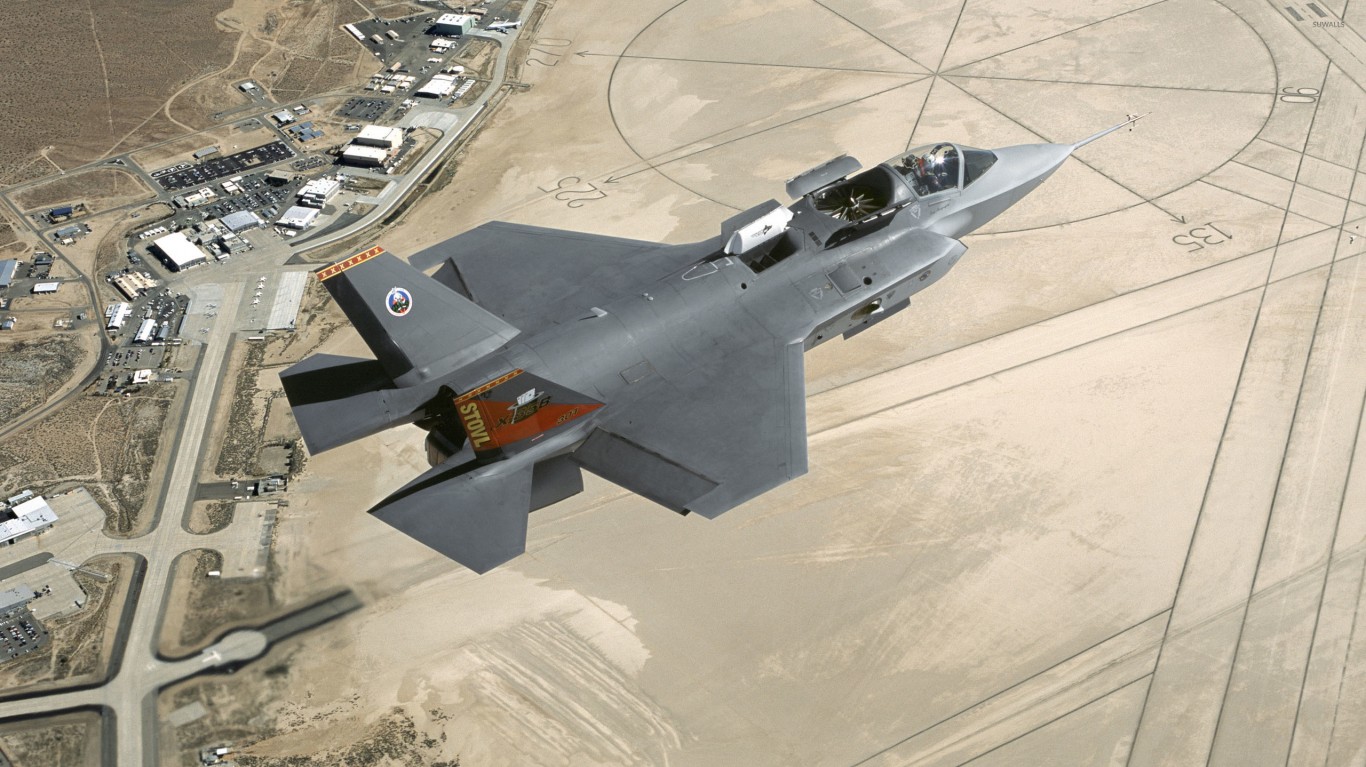
F-35 Lightning II
> Aircraft in active service: 162
> Year entered service: 2016
> Crew: 1
> Manufacturer: Lockheed Martin
> Top speed: 1199 mph
> Variants: F-35A (conventional), F-35B (STOVL), F-35C (carrier-based)
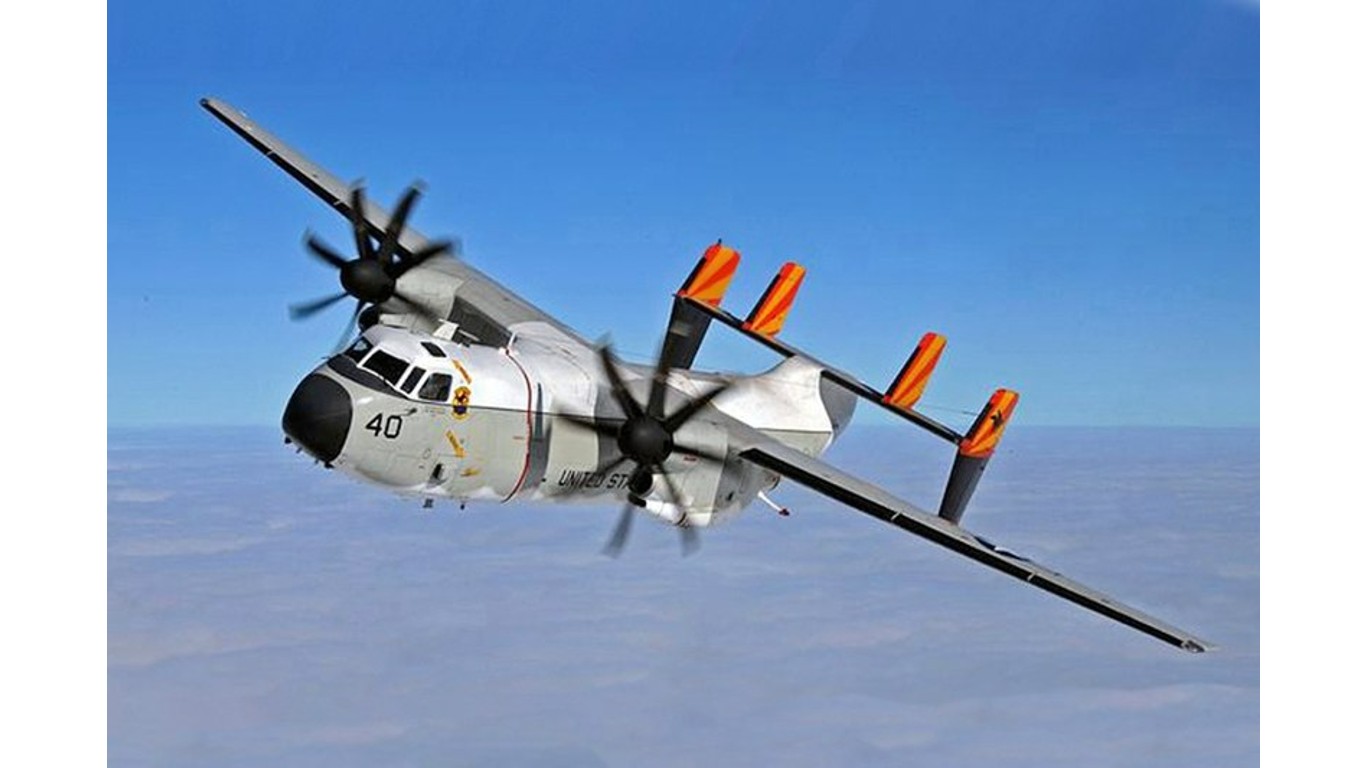
Grumman C-2 Greyhound
> Aircraft in active service: 30
> Year entered service: 1967
> Crew: 4
> Manufacturer: Northrop Grumman
> Top speed: 331 mph
> Variants: C-2A (initial production model)
[in-text-ad]
Sikorsky CH-53 Sea Stallion
> Aircraft in active service: 140
> Year entered service: 1966
> Crew: 3
> Manufacturer: Sikorsky Aircraft
> Top speed: 196 mph
> Variants: CH-53A (base model), VH-53D (VIP transport)
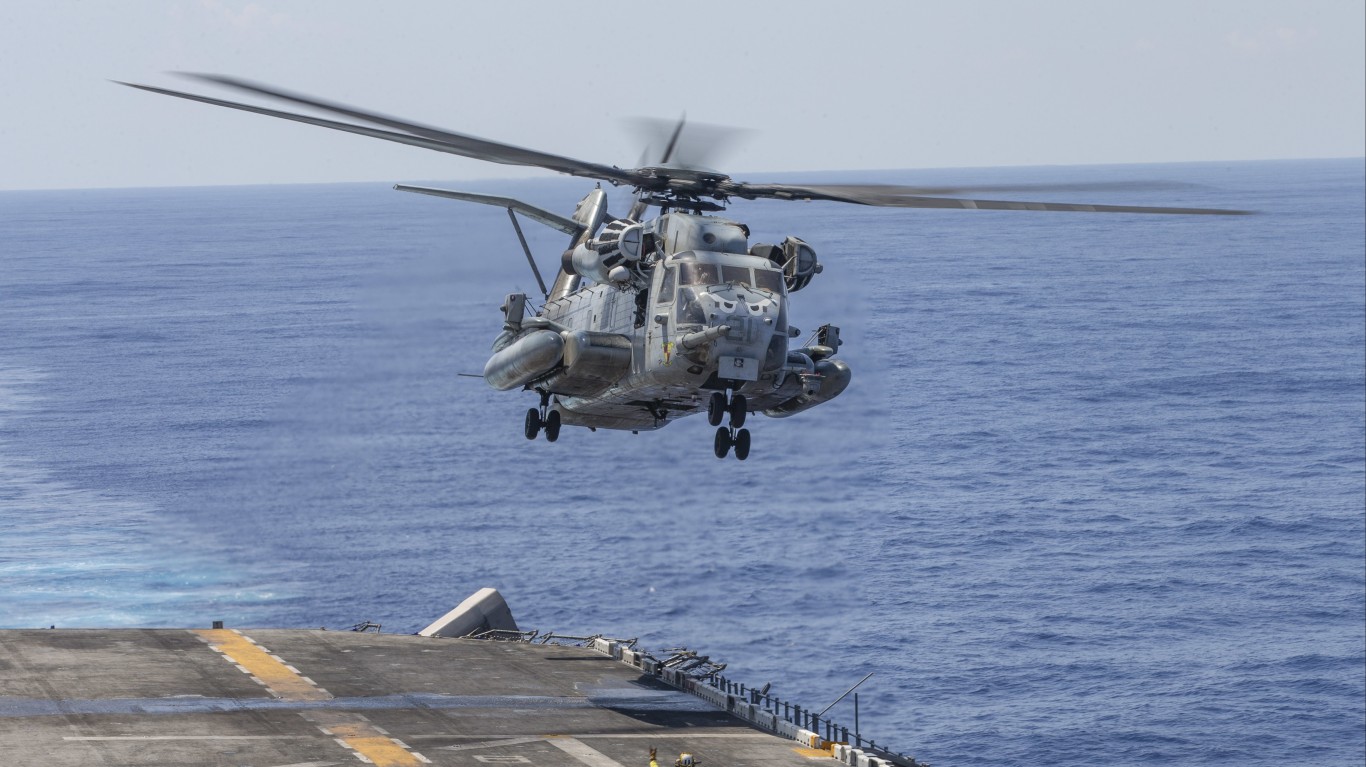
Sikorsky CH-53E Super Stallion
> Aircraft in active service: 35
> Year entered service: 1981
> Crew: 5
> Manufacturer: Sikorsky Aircraft
> Top speed: 196 mph
> Variants: CH-53K (King Stallion), MH-53E (Sea Dragon)
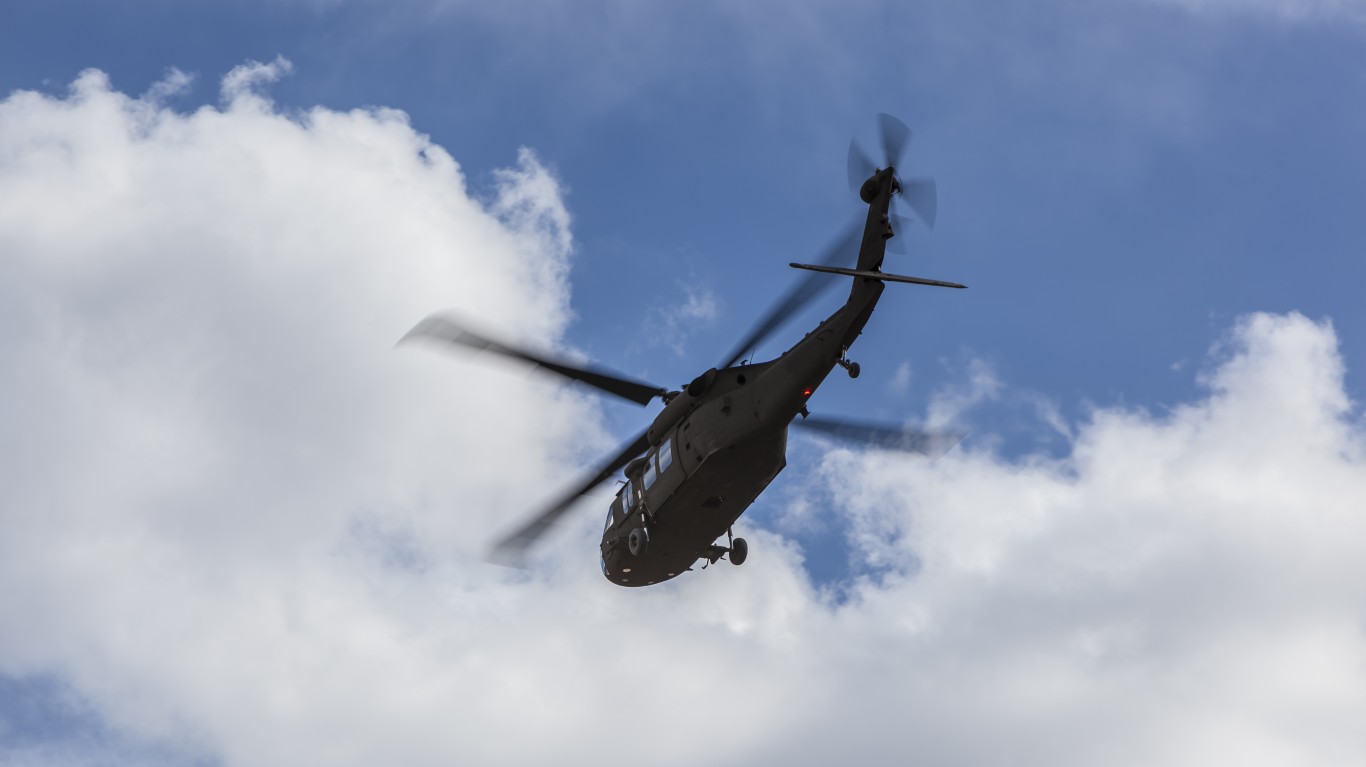
Sikorsky UH-60 Black Hawk
> Aircraft in active service: 493
> Year entered service: 1979
> Crew: 2
> Manufacturer: Sikorsky Aircraft
> Top speed: 183 mph
> Variants: MH-60 (Knighthawk), SH-60 (Seahawk)
[in-text-ad-2]

T-45 Goshawk
> Aircraft in active service: 189
> Year entered service: 1991
> Crew: 2
> Manufacturer: BAE Systems, Boeing
> Top speed: 645 mph
> Variants: T-45A (base trainer), T-45C (current standardized Goshawk)
Are You Still Paying With a Debit Card?
The average American spends $17,274 on debit cards a year, and it’s a HUGE mistake. First, debit cards don’t have the same fraud protections as credit cards. Once your money is gone, it’s gone. But more importantly you can actually get something back from this spending every time you swipe.
Issuers are handing out wild bonuses right now. With some you can earn up to 5% back on every purchase. That’s like getting a 5% discount on everything you buy!
Our top pick is kind of hard to imagine. Not only does it pay up to 5% back, it also includes a $200 cash back reward in the first six months, a 0% intro APR, and…. $0 annual fee. It’s quite literally free money for any one that uses a card regularly. Click here to learn more!
Flywheel Publishing has partnered with CardRatings to provide coverage of credit card products. Flywheel Publishing and CardRatings may receive a commission from card issuers.
Thank you for reading! Have some feedback for us?
Contact the 24/7 Wall St. editorial team.
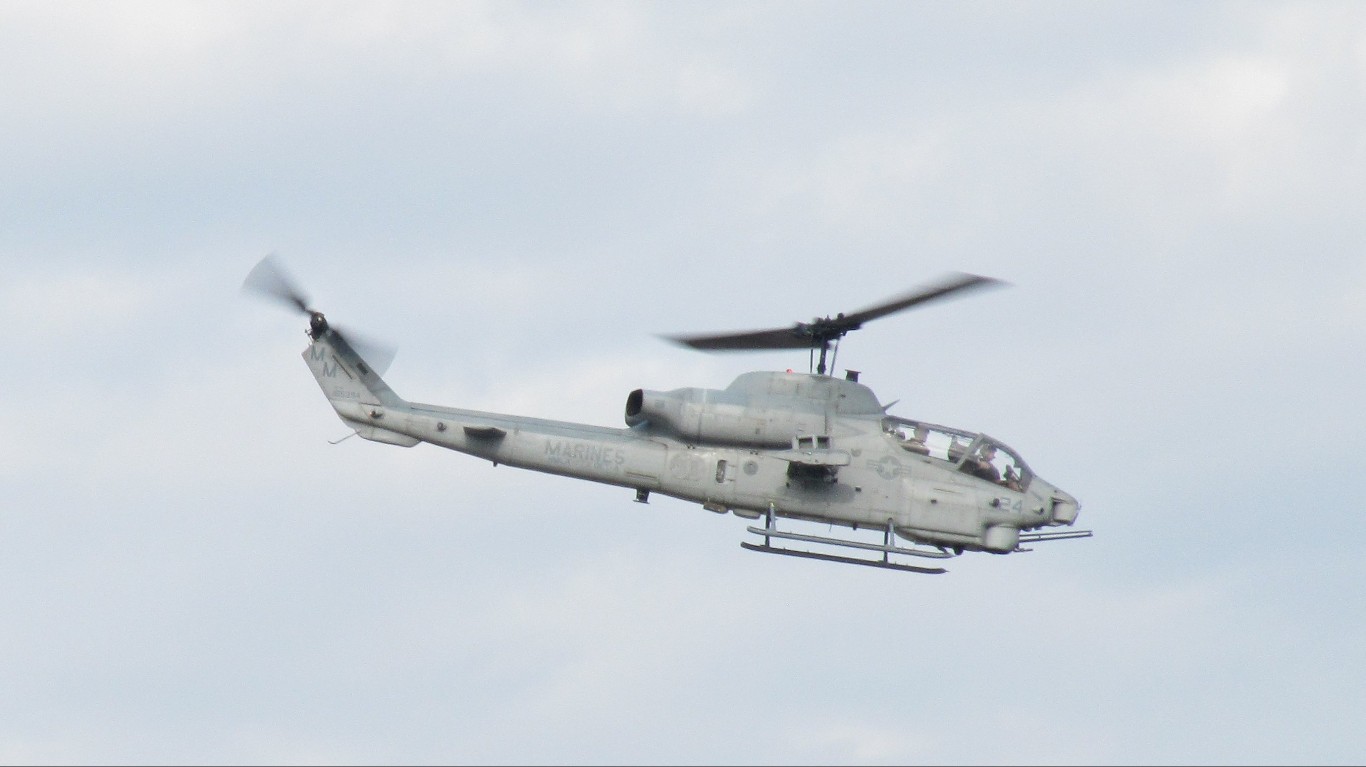
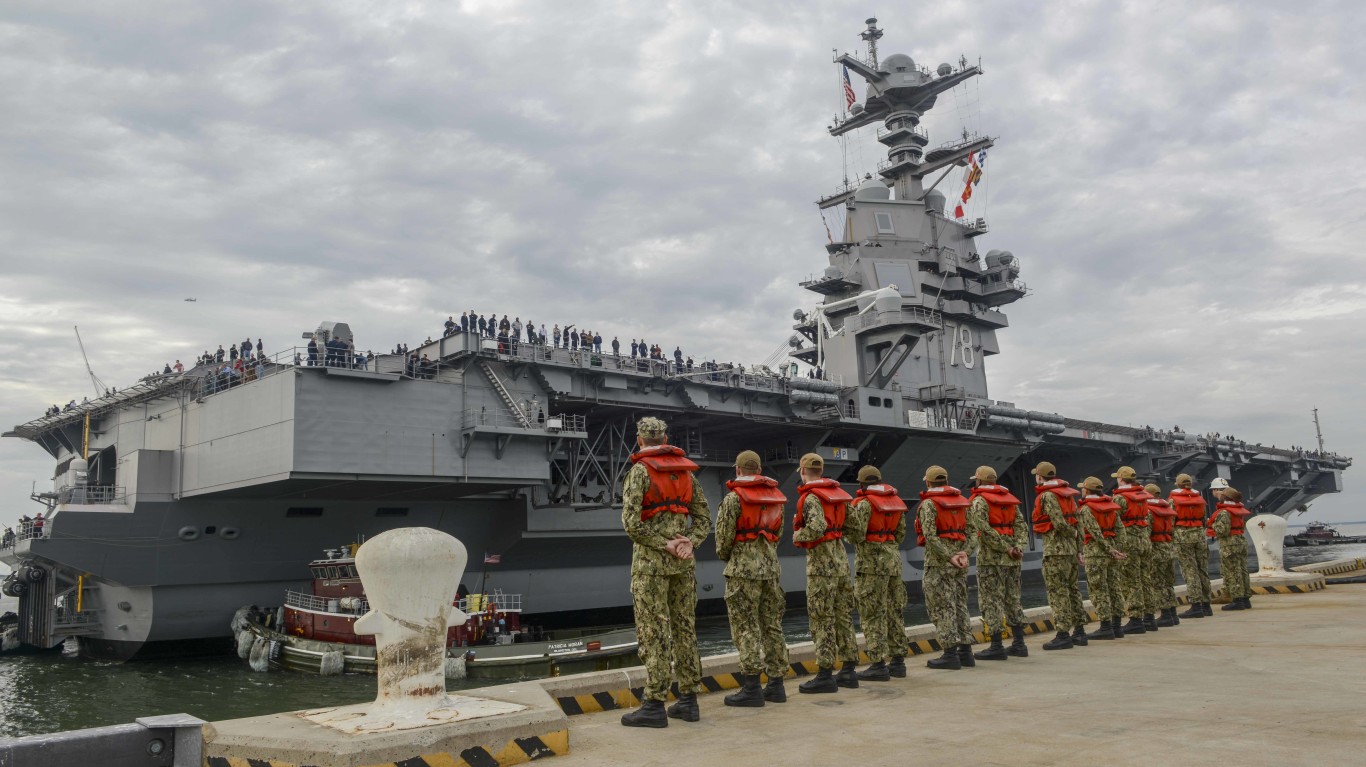 24/7 Wall St.
24/7 Wall St.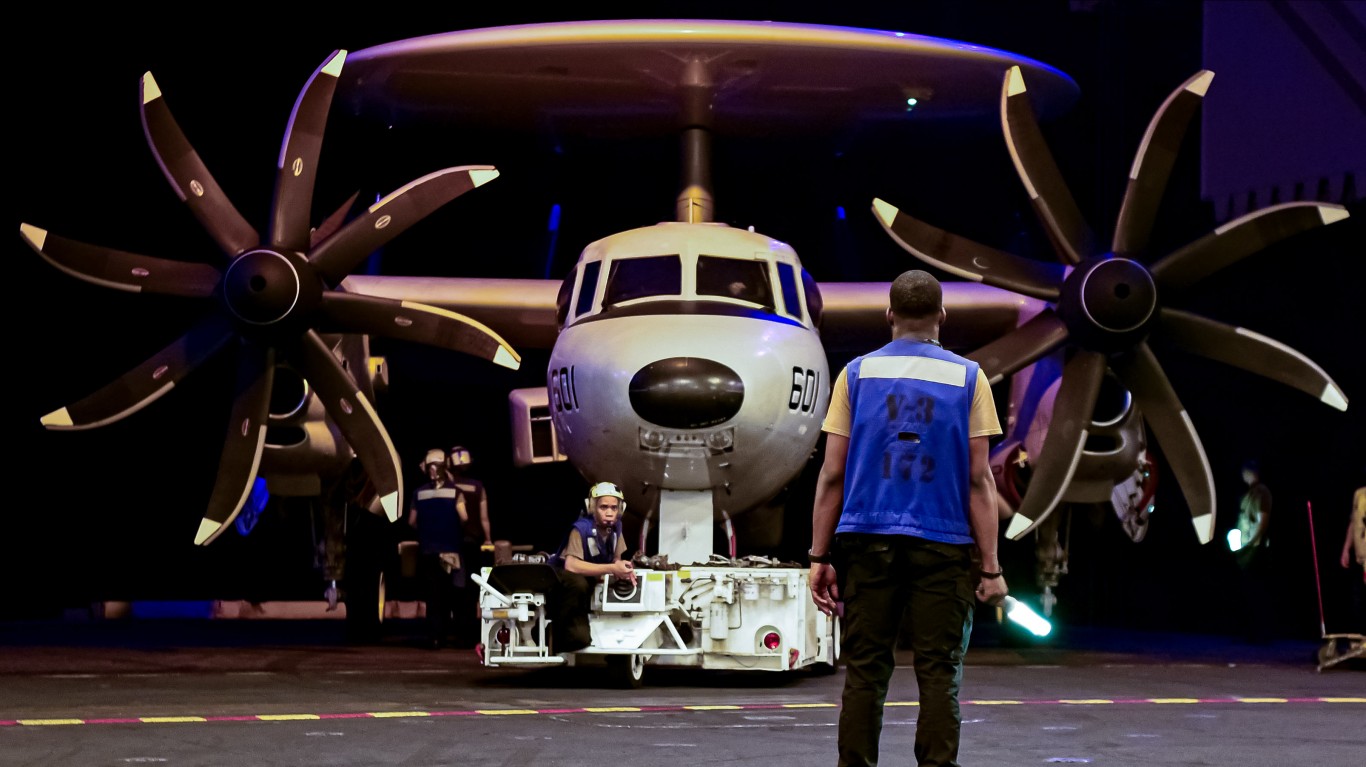
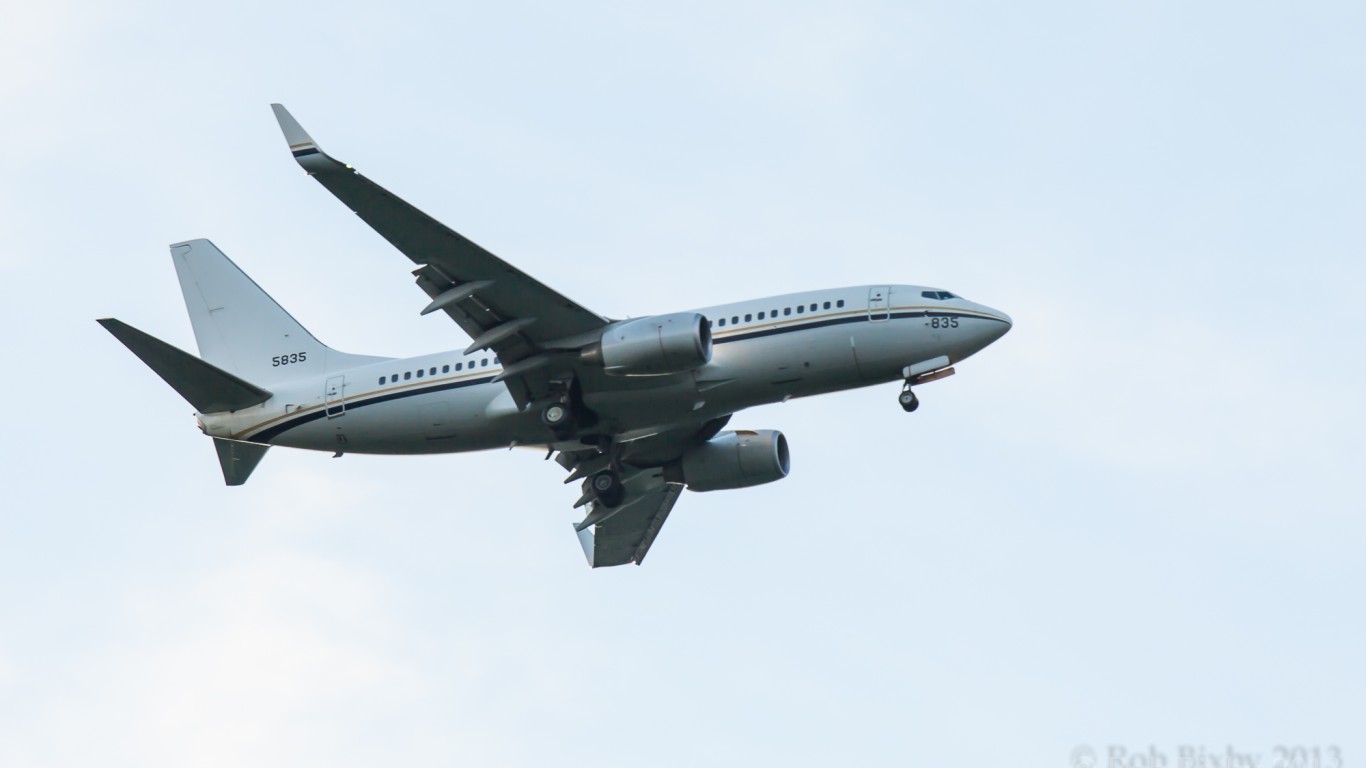 24/7 Wall St.
24/7 Wall St.